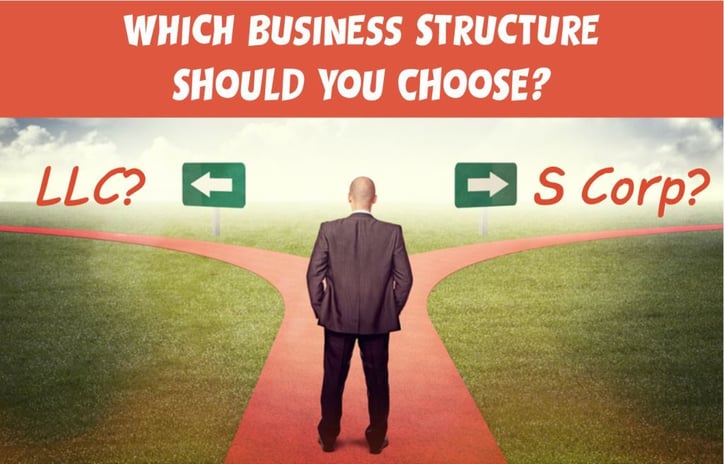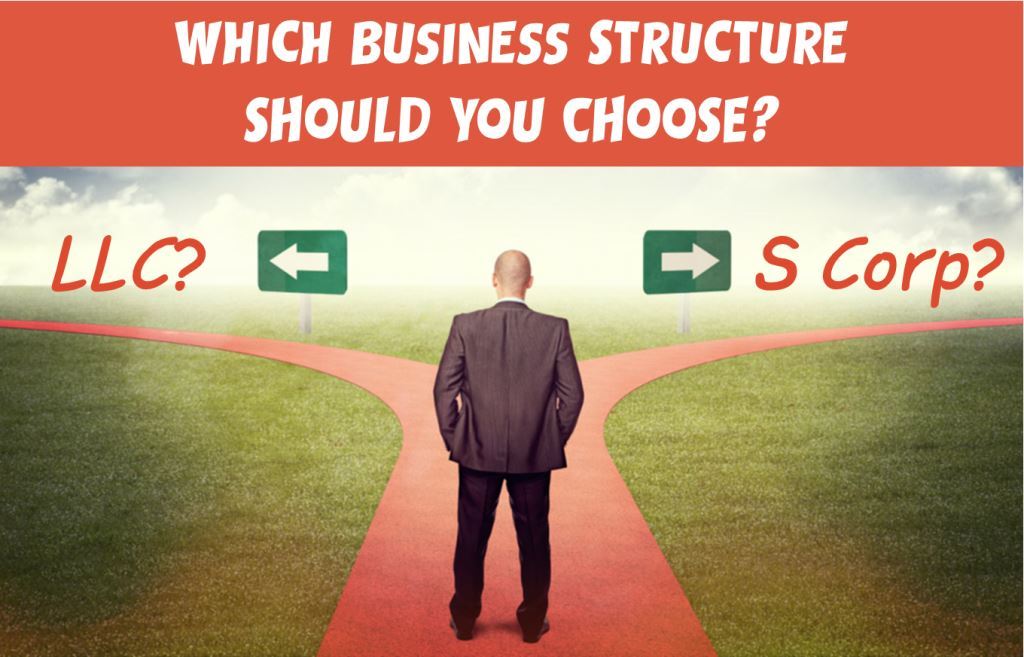Starting a new small business? One of the very first decisions you’ll make will have an impact throughout the life of your business . . . and is a major hassle to change down the road. What is this intimidating decision? Choosing the right business structure.

Luckily, there are smart advisors that can look at your situation and help you. We recommend that you have a conversation about your options with both your attorney and your accountant. It’s important to seek advice from both because their areas of expertise are unique. Once you know the pros and cons from a legal and a tax/financial perspective, you’ll be able to make the best decision for your personal situation.
Your main options are:
• Sole proprietorship
• Partnership
• Cooperative
• C corporation
• S corporation (S Corp)
• Limited liability company (LLC)
For a small retail business like a bakery, your choice will most likely be between the last three on the list. From a legal perspective, any of these three options will protect your personal assets because they structure your business as a legal entity separate from you as an individual. Whether you choose a C corporation, S corporation, or LLC structure, the liabilities of your business will be separate and limited to the amount of capital you invest in the business entity. (However, you may have to use your home as collaterol for a loan and sign a personal guarantee with your lease, regardless of your choice for a business structure -- just something to keep in mind.)
Definitions of corporate structures
C and S corporations: There is no difference between C and S from a legal perspective; both are entities formed and registered with the state. The only difference is related to taxes – is the corporation subject to the rules in subchapter C or S of the Internal Revenue Code? A C corporation is a separate tax-paying entity that pays tax on the profits of the business. An S corporation’s profits show up on the tax returns of the shareholders; the business itself doesn’t pay taxes.
Limited liability company: A business structure designed to combine the legal advantages of a corporation (limiting the liabilities of the members of the company) with the tax structure of a partnership, where individuals report their allotted profits on their own tax returns.
What do Great Harvest bakery owners choose for their business structure?
- Limited liability company (LLC): 49%
- S corporation (S Corp): 45%
- C corporation: 6%
C corporations are not as popular because they are not generally as tax friendly; though of course it depends on your situation and your state. I noticed that over half of the Great Harvest owners with C corporations are in Utah, so there might be something unique about Utah taxes to explore with your advisors if that is where you are opening a business.
How do I choose between an LLC and an S Corp?
They are similar from a tax perspective – income will pass through to the member's and shareholder’s tax returns – but there are differences to consider as well. LLCs require less recordkeeping and are easier and less expensive to set up. S Corps must hold board meetings, keep minutes and designate officers. LLCs are very flexible in how profits can be shared among members. On the other hand, distributions in an S Corp must be paid out according to how many shares each person holds. However, S Corp shareholders that work in the business can divide the money they receive between salary (as long as it’s reasonable and not artificially low) and dividends, which are taxed at a lower rate. This can help lower your taxes. LLC members’ payments are all taxed at the higher rate, as if it were all salary.
To make the LLC vs. S Corp distinction more confusing…
You can also form an LLC and treat it as an S Corp for taxes. To do this, you must file a form with the IRS within the first couple months of your tax year. Be sure to check with your state to make sure they allow this designation. Among Great Harvest bakery owners who operate as LLCs, 65% of the LLCs have chosen to be taxed as S Corps.
Examples of additional considerations to discuss with your advisors:
Special issues in your state:
- Are single-member LLCs vulnerable to “piercing the corporate veil” in your state?
- How might state or local taxes impact your choice?
- Are there unique administrative requirements? In New York, for example, you need to publish ads in local newspapers announcing your new LLC’s formation (2 newspapers, once each week for 6 weeks. Source: Brinenlaw.com).
Types and number of owners:
- Are all of the individual parties U.S. residents? (A nonresident alien can’t own a share in an S corporation.)
- How many members in your S Corp? (There are no limitations on the number of members of an LLC, but an S Corp has some limitations.)
Unique financial situations:
- Kids headed to college? Talk to your tax advisor about the impact on financial aid (see Forbes.com).
If your head is starting to spin, don’t worry. Your lawyer and accountant have answered these questions many times before because every small business owner makes this decision. They’ll be able to help you choose the business structure that works best for your situation.
Bakery owners, if you have any tips to add here from experience, please chime in with comments at the bottom of the page!
Read more about how to choose the right business structure:
- Should My Company Be an LLC, S Corp, or Both? (SBA.gov)
- Choose Your Business Structure (SBA.gov)
- LLC vs. S Corp: Which is Right for Your Startup (Mashable.com)
- Should Your Business Be an LLC or an S Corp (Inc.com)
Curious to Know More About Starting a Bakery Business with Great Harvest?
You may also want to view our infographic about the Path to Bakery Ownership with Great Harvest.





